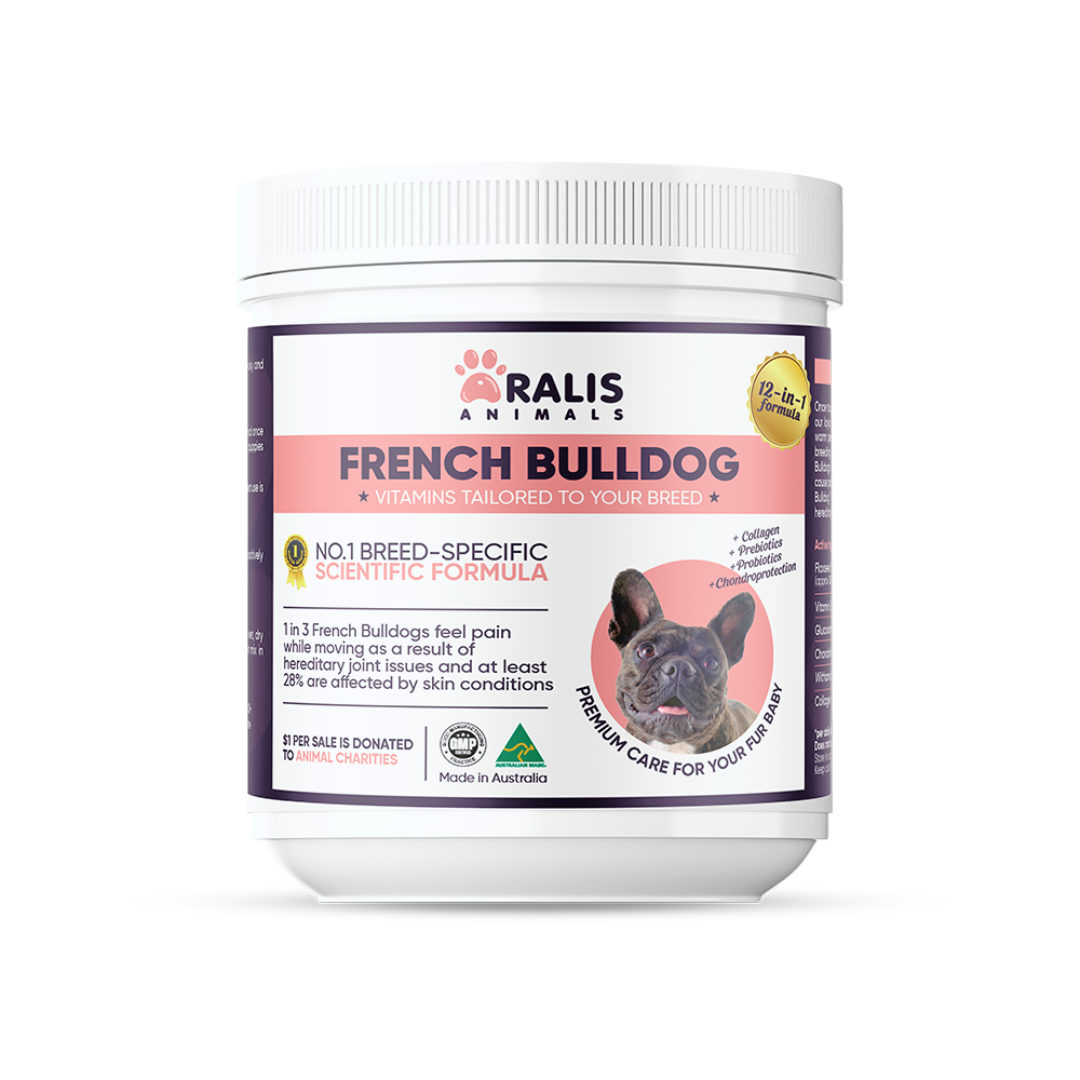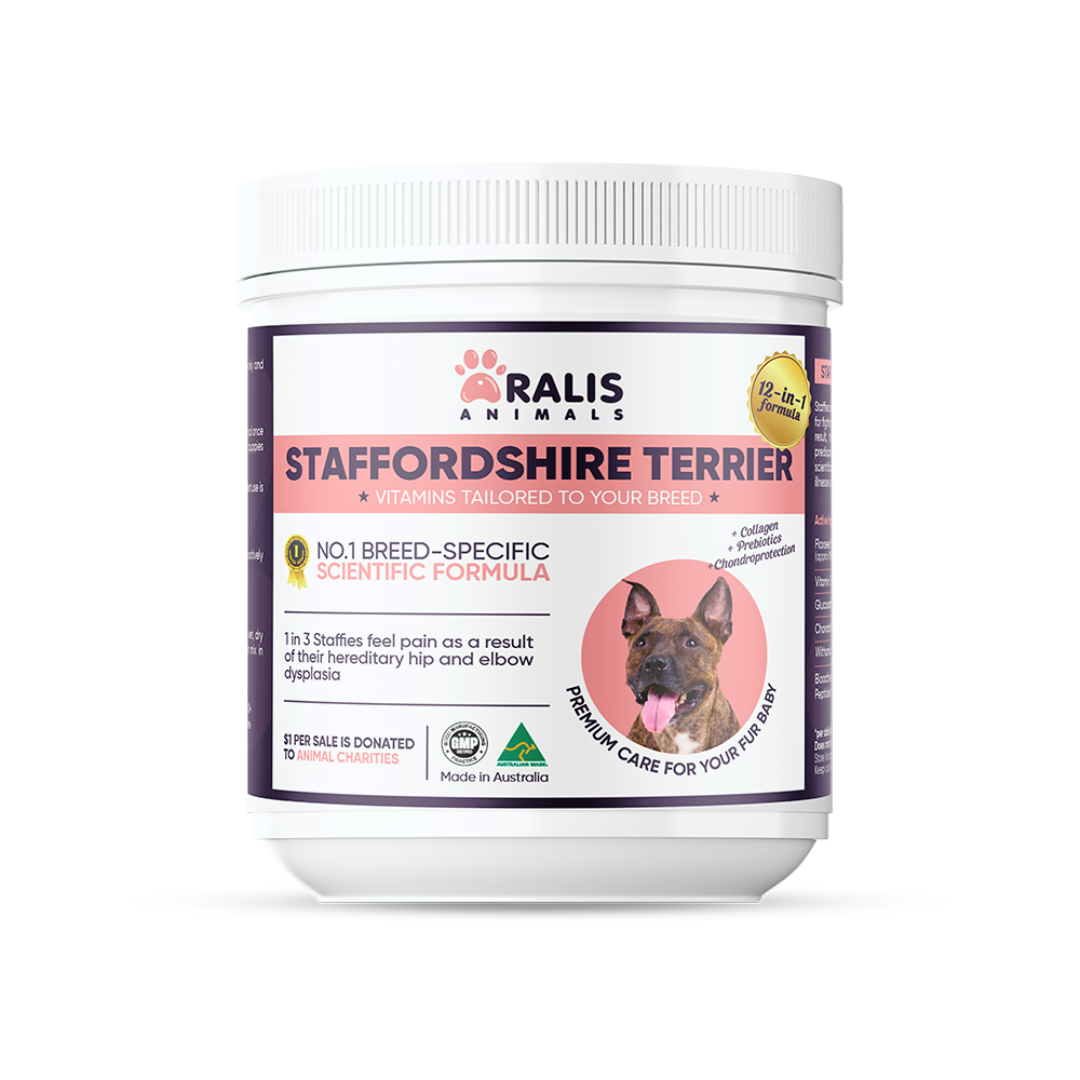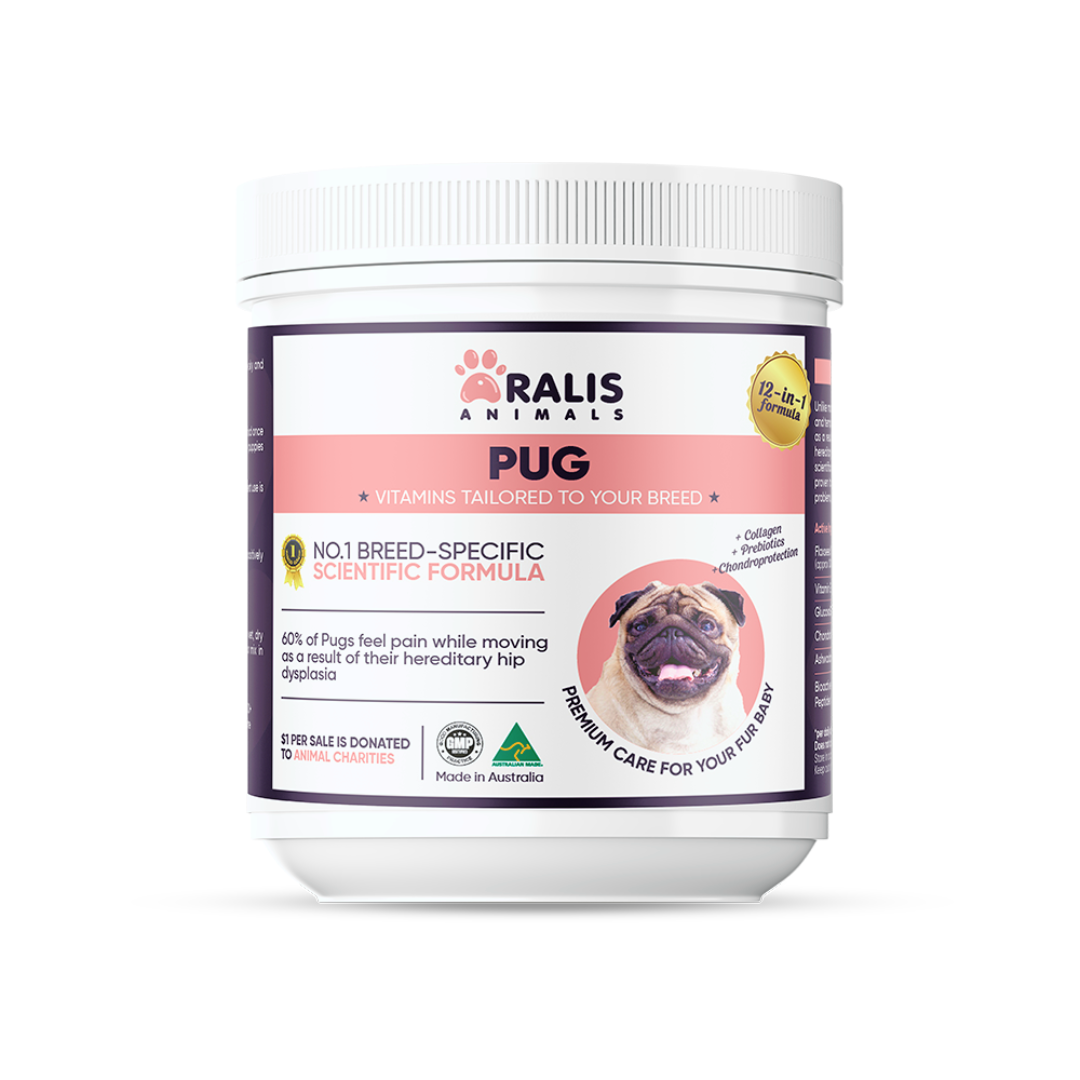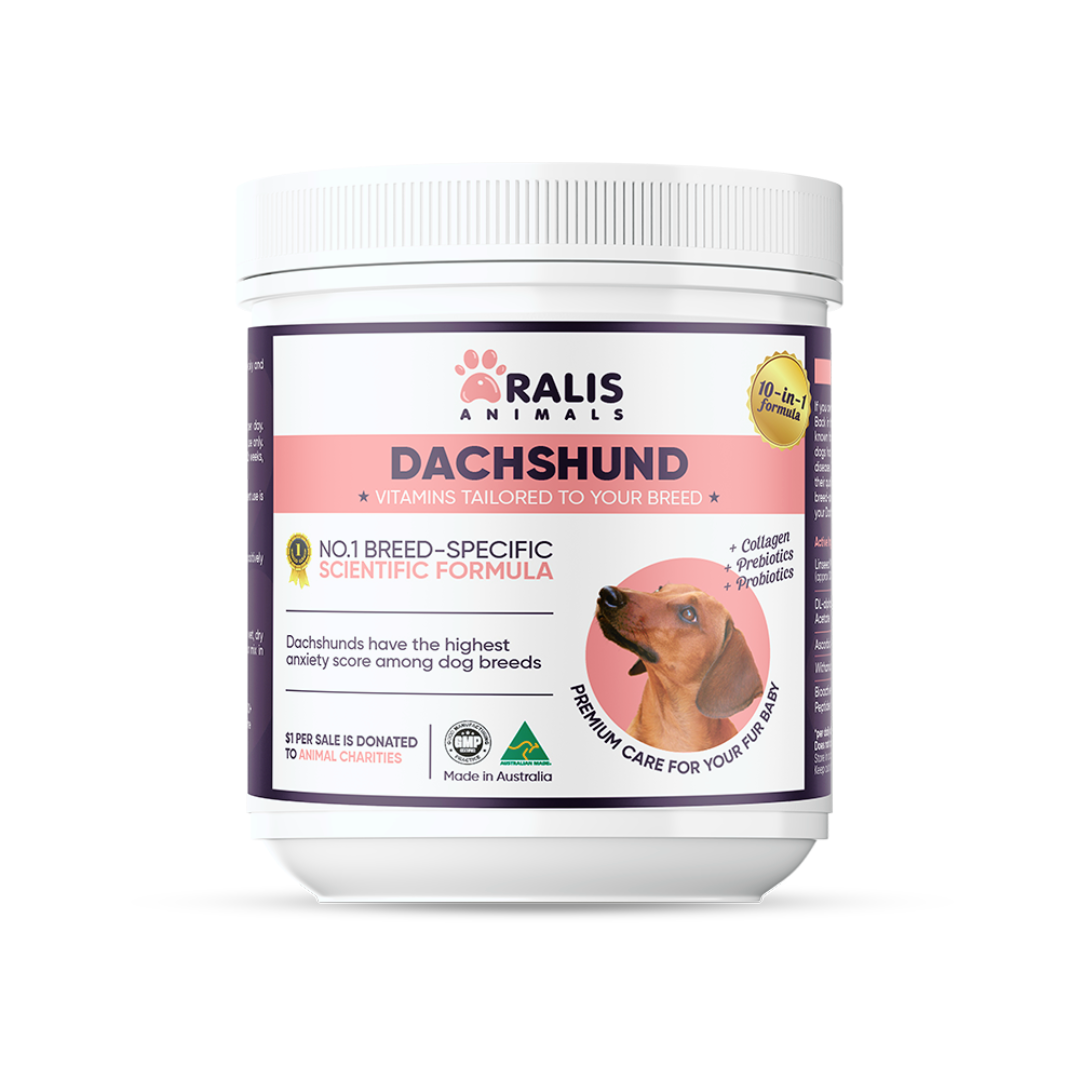How to Choose the Right Probiotic for Dogs With Allergies or Digestive Issues

As pet owners, we want nothing more than to see our furry companions thrive. But for dogs with allergies or digestive issues, finding the right solutions can be a challenge. That's where probiotics come into play – these powerful supplements can be a game-changer in supporting your dog's overall health and well-being.
At Aralis Animals, we're dedicated to providing breed-specific supplements that cater to the unique needs of our canine friends. In this blog post, we'll dive deep into the world of probiotics, exploring how they can help alleviate your dog's allergies and digestive troubles, and guide you in selecting the perfect probiotic for your pup.
What Are Probiotics for Dogs?
Probiotics are live microorganisms that, when administered in adequate amounts, can provide a host of benefits for your dog's health. These beneficial bacteria work in harmony with the gut microbiome, the diverse community of microorganisms that reside in your dog's digestive system.
The gut microbiome plays a crucial role in a wide range of bodily functions, from nutrient absorption and immune system regulation to the production of essential vitamins and the management of inflammation. When the gut microbiome is out of balance, it can lead to a variety of issues, including digestive problems and heightened allergic responses.
Probiotics help restore and maintain a healthy gut microbiome by replenishing the beneficial bacteria, which in turn can alleviate symptoms associated with allergies and digestive disturbances.
Signs Your Dog Needs Probiotic Supplements
Recognizing the signs that your dog may benefit from probiotic supplements is the first step in addressing their health concerns. Some common indicators include:
Digestive Symptoms
- Chronic diarrhea or constipation
- Excessive gas or bloating
- Vomiting or nausea
- Poor appetite or weight loss
Skin and Allergy Indicators
- Persistent itching or scratching
- Recurrent skin infections or hot spots
- Ear infections or inflammation
- Environmental or food allergies
If you notice any of these symptoms in your dog, it's essential to consult with your veterinarian. They can help determine the underlying cause and recommend the appropriate probiotic supplement to address your dog's specific needs.
Choosing the Right Probiotic
When it comes to selecting the right probiotic for your dog, there are several factors to consider:
Strain Diversity
Look for a probiotic supplement that contains a variety of bacterial strains, as each strain can provide different benefits. A diverse probiotic formula is more likely to address the complex needs of your dog's gut and immune system. Our Aralis Animals formula features a blend of Lactobacillus and Bifidobacterium strains that not only aid digestion but also help manage allergy-related inflammation. This ensures your pooch receives a complete, breed-informed gut health solution. Learn more here.
Quality and Source
Ensure that the probiotic supplement you choose is made from high-quality, reputable sources. Avoid products with fillers, artificial additives, or questionable ingredients that could do more harm than good.
Dosage and Administration
Follow the recommended dosage guidelines provided by the manufacturer or your veterinarian. Proper dosing is crucial for achieving the desired results, and the method of administration (e.g., powder, chewable, or liquid) may also play a role in your dog's acceptance and tolerance.
Probiotics vs. Prebiotics
While probiotics are the live, beneficial bacteria, prebiotics are the food that nourishes and supports the growth of these microorganisms. Prebiotics are typically found in certain fibers and complex carbohydrates, and they work hand-in-hand with probiotics to promote a healthy gut.
Incorporating both probiotics and prebiotics into your dog's diet can create a synergistic effect, further enhancing the positive impact on their digestive and immune health.
Natural Probiotic Solutions
In addition to probiotic supplements, there are natural food-based sources that can provide your dog with beneficial bacteria:
Fermented Foods
- Kefir
- Yogurt (without artificial sweeteners)
- Sauerkraut
- Kimchi
Whole Foods
- Pumpkin
- Sweet potatoes
- Bananas
- Oats
These whole-food options can be a great way to introduce probiotics into your dog's diet, but it's important to consult with your veterinarian to ensure they are appropriate for your pup's individual needs.
Potential Benefits and Expected Results
By incorporating the right probiotic supplements into your dog's routine, you can expect to see a range of positive outcomes, including:
Improved Digestive Health
- Reduced instances of diarrhea, constipation, and other gastrointestinal issues
- Enhanced nutrient absorption and better overall digestion
Skin and Allergy Relief
- Decreased itching, inflammation, and skin irritation
- Improved immune response to environmental and food allergens
Long-Term Wellness
- Stronger immune system
- Increased energy and vitality
- Overall improvement in your dog's quality of life
Remember, every dog is unique, and the timeline for seeing results may vary. Consistency and patience are key when introducing probiotic supplements, as it can take several weeks or even months for the full benefits to manifest.
Conclusion
Probiotics are a powerful tool in supporting your dog's health, particularly when it comes to managing allergies and digestive concerns. By understanding the role of probiotics and selecting the right supplement for your pup, you can help them thrive and enjoy a happier, healthier life.
At Aralis Animals, we're committed to providing breed-specific solutions that cater to the unique needs of our canine companions. Explore our selection of premium probiotic supplements and discover how they can elevate your dog's wellness. Together, let's embark on a journey to optimal pet health.





